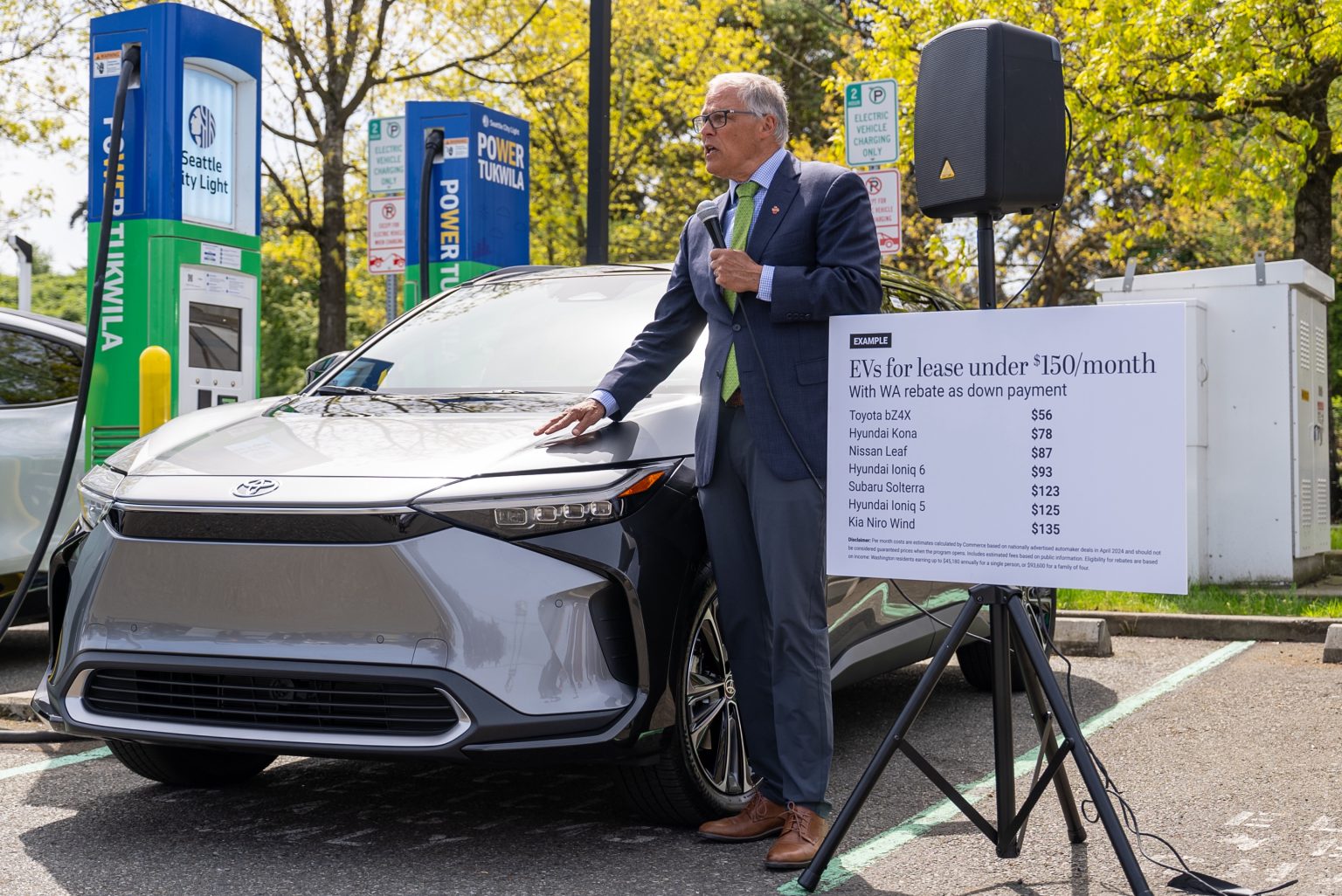Washington leaders announced a $45 million program to make electric vehicles more affordable for low-income residents. The Washington EV Instant Rebates Program provides rebates for eligible consumers at the time of purchase for new or used EVs. Residents earning up to $45,180 for a single person or $93,600 for a family of four are eligible. The program will significantly reduce the cost of leasing certain EV models to below $100 per month. New EVs are eligible for rebates of $5,000 for a purchase or 2-year lease, while used EVs can receive a $2,500 rebate for purchases and leases of 2 years or longer. The program is expected to issue 6,500 to 8,000 rebates and applies to vehicles priced at $90,000 or less. Gov. Jay Inslee stated that the new rebates are aimed at making EVs accessible to those with lower incomes as part of the state’s move towards a clean transportation future.
Washington’s program is the first in the nation to offer rebate incentives for low-cost leases, in addition to sales. Federal tax credits of up to $7,500 for qualifying new EVs and $4,000 for used EVs are available to all consumers. Washington also provides sales tax exemptions and waivers for the purchase and installation of charging devices, with many utilities offering rebates for chargers. The state has set goals for all new vehicles sold in 2035 to be zero carbon emissions. Data shows that 19% of new cars registered in Washington in 2023 were EVs or plug-in hybrids, nearly double the U.S. average. Although EV sales are rising, overall growth is slowing in the U.S. and global markets, with analysts attributing much of the slowdown to lagging Tesla sales. American automakers are also scaling back EV manufacturing.
Access to charging stations is expanding nationwide, with one fast-charging EV station for every 15 gas stations. Washington has invested $100 million in EV infrastructure, focusing on chargers in multifamily housing and areas most affected by air pollution. The funding comes from the state’s Climate Commitment Act, which could be eliminated by voters in November through Initiative 2117. The fate of the act will impact emissions limits in the state.
The program aims to improve accessibility to electric vehicles for low-income residents, aligning with Washington’s push for a clean transportation future. By providing instant rebates for EV purchases and leases, the program offers financial incentives for those with modest incomes to switch to electric transportation. The state’s ambitious goals for zero carbon emissions vehicles by 2035 and significant investments in EV infrastructure highlight Washington’s commitment to sustainability and reducing air pollution. Despite challenges in the EV market, Washington remains dedicated to promoting electric transportation and reducing greenhouse gas emissions.


